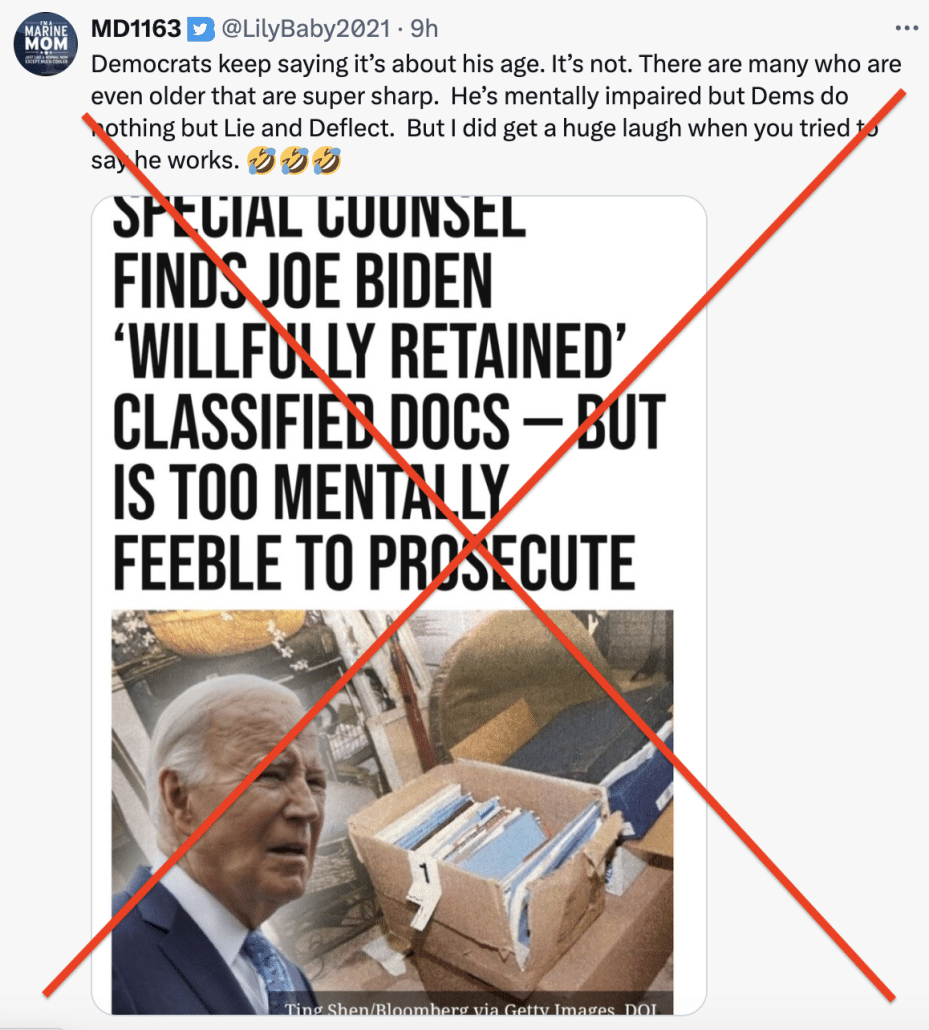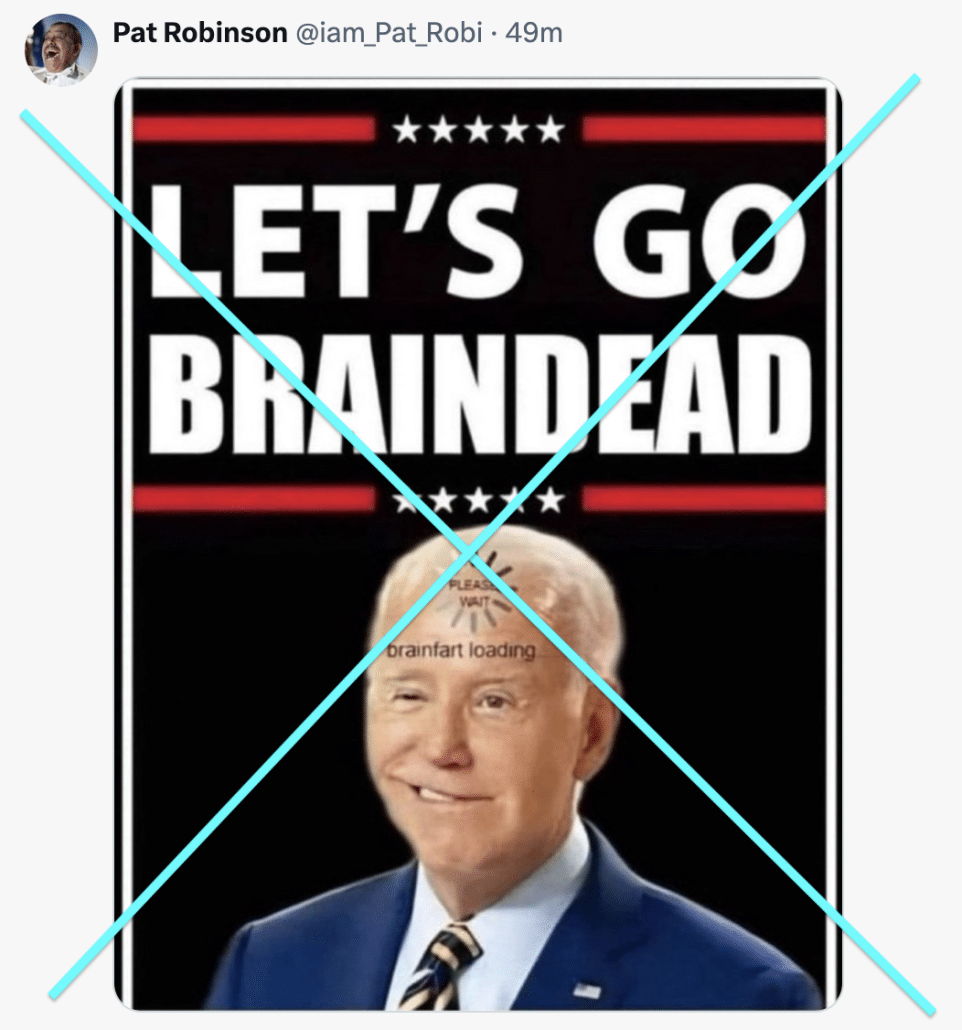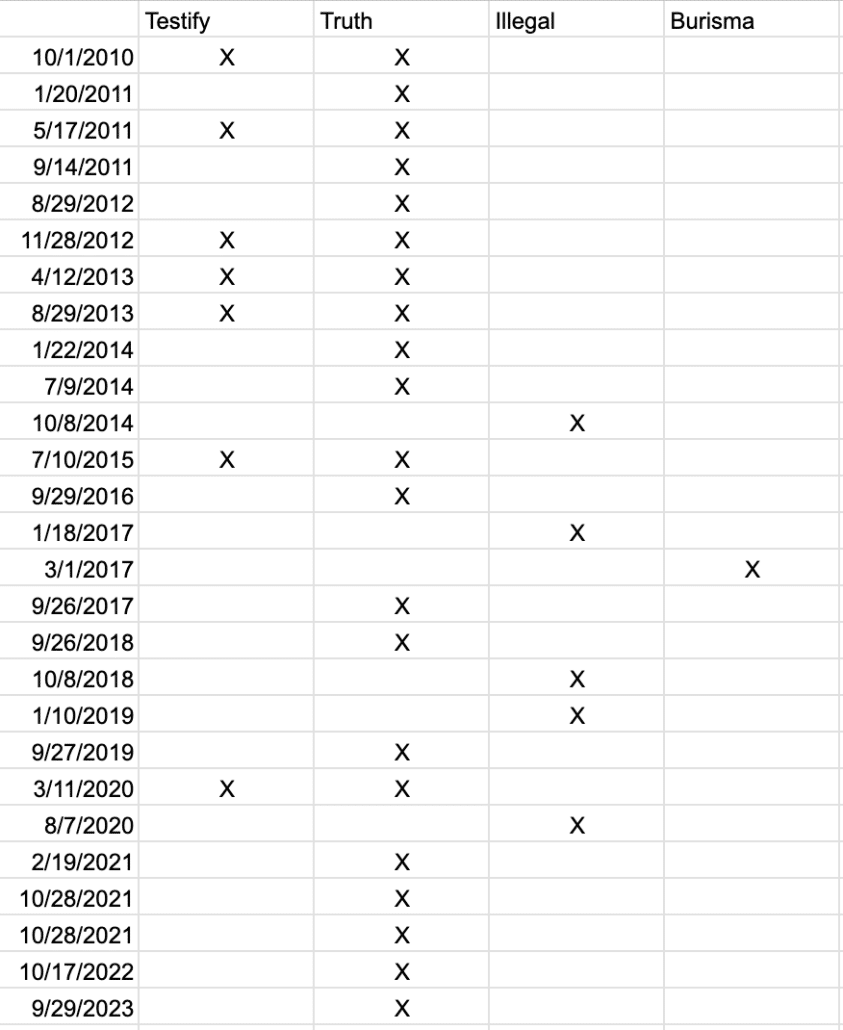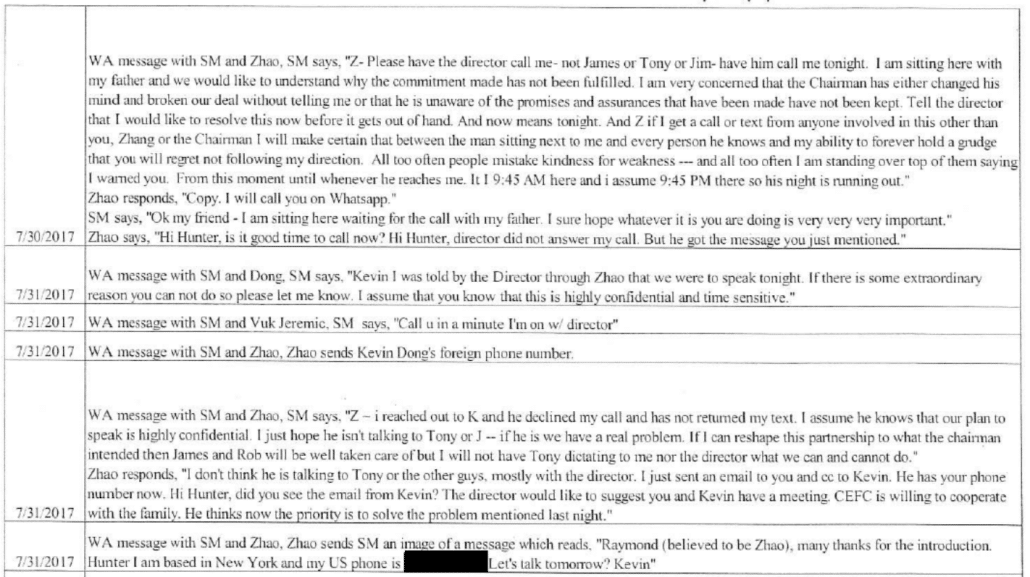In the wake of the Alexander Smirnov indictment, the 51 former spooks who wrote a letter stating their opinion that the release of Hunter Biden emails to the NY Post is consistent with a Russian information operation have claimed vindication. That has led to this problematic Ken Dilanian report parroting David Weiss filings that deliberately obscured the evidence in the Hunter Biden case. And that, in turn, has led to a flood of people expressing opinions about the laptop turned over by John Paul Mac Isaac (Olivia Nuzzi, Reese Gorman) that exhibit no clue about how precarious that evidence is now.
In other words, that has renewed a debate consisting of misrepresenting the 51-spook letter, then misstating what the public evidence about the laptop shows.
I’ll return to the details about the laptop that these people are missing; hopefully until I get there, they’ll consider whether David Weiss’ claim that a Keith Ablow picture of a picture of a table saw with sawdust was instead Hunter Biden’s cocaine really validates the laptop, as they seem to believe it does.
But there is one person who has been vindicated: Lesley Wolf, the AUSA who aggressively pursued real charges against Hunter Biden, even while attempting to prevent repeated onslaughts of political garbage from tainting the case.
Among the many complaints the two disgruntled IRS agents aired, largely targeting her, one was that, “This investigation has been hampered and artificially slowed by various claims of potential election meddling.” That appeared in a memo submitted within the IRS in December 2020, probably written by Gary Shapley. The IRS agents believed they knew better than Lesley Wolf about efforts to interfere in the election.
The IRS agents and their allies in Congress bitched over and over that Wolf and others had not ingested politicized dirt into the investigation readily enough.
For example, Joseph Ziegler described that investigators asked to reinterview Tony Bobulinski after his October 23, 2020 meeting with the FBI, but were not permitted to do so because he “was not viewed as a credible witness” — and that was before Cassidy Hutchinson’s testimony, now backed by video, about the sketchy meeting Bobulinski had with Mark Meadows.
I can recall that agents on the investigative team brought up on multiple occasions to the assigned prosecutors that they wanted to do an interview of Bobulinski with the assigned case agents. I can recall being told that they would think about it and then ultimately being told there was no need for the team to interview Bobulinski and that Bobulinski was not viewed as a credible witness.
In his House testimony, Bobulinski backed off all the most inflammatory claims — such as that he attended a key meeting in Miami and witnessed Hunter receive a large diamond as a gift –made to the FBI.
Republicans in Congress have repeatedly complained that Tim Thibault shut down Peter Schweizer as a confidential human source in September 2020. Thibault explained to Congress that the Supervisory Special Agent called him and asked him to stop sending Schweizer’s reporting, because doing so would give Hunter’s attorneys ammunition if the case ever went to trial.
A I understand you don’t need the reporting anymore. I understand that if this goes to trial, Hunter Biden’s attorney —
Q Uh-huh?
A — could have some ammunition.
And Shapley specifically complained that Lesley Wolf withheld a particular email about some anomalies in the the hard drive image obtained from John Paul Mac Isaac.

Prosecutors deliberately withheld that email from agents who might have to testify to avoid making it Jencks production that would have to be shared with Hunter’s lawyers. Thanks to Shapley, it will presumably play a role in any suppression and Brady complaints tied to the laptop.
None of this is particularly noble on Wolf’s part. It’s typical, among prosecutors, in that they watch out for any evidence that would harm a case at trial, and avoid ingesting it in ways that would give defendants access to it. Lesley Wolf was not withholding details about problems with the hard drive JPMI provided the FBI to protect Hunter Biden. She was doing it to protect her case. In fact, her treatment of the laptop may be the one thing that helps bollox the case, if Leo Wise ends up needing any assistance on that front.
But it seems quite clear that efforts Wolf made to preserve a case for trial were instead spun by the disgruntled IRS agents as attempts to thwart the investigation. Their efforts to sell that spin have not only endangered the case, but also resulted in death threats targeting Wolf and her family.
Particularly given the timing of Congress’ focus on the FD-1023, including Bill Barr’s public commentary, Alexander Smirnov’s attempt to frame Biden is an important example of an effort Wolf made to protect a viable case against Hunter.
Gary Shapley released a memo that will be central to Hunter Biden’s bid to obtain discovery on the treatment of the Smirnov tip and the Scott Brady back channel, generally. It shows that the FD-1023, “was ordered to be received by this prosecution team by [Richard Donoghue]. It is happening on 10/23/2020 at 3pm in the Delaware FBI office.” It is proof that days after Trump yelled at Barr about the Hunter Biden investigation, DOJ ordered Wolf to accept this briefing.
Yet in his testimony, Shapley said that “We never discussed the form,” seemingly a reference to the Smirnov allegation.
After Barr ran his mouth to Margot Cleveland, both Ziegler and Shapley submitted supplements complaining that they hadn’t gotten briefed on the allegation. Shapley’s testimony, that neither the IRS agents nor the FBI agents, had checked out the allegation seems inconsistent with his claim never to have spoken about it.
Neither I nor the line IRS-CI agents acting under my supervision, nor the FBI agents working with IRS-CI, were ever provided the CHS information that Attorney General Barr recently referenced was sent to Delaware to have it “checked out.” Prosecutors never provided such information to IRS-CI. As such, neither IRS-CI nor the FBI agents working with him were provided the opportunity to conduct proper investigation into the allegations presented by this CHS. I, long with other IRS-Cl investigators, requested 10 be apart of briefings that the Delaware USAO and DOJ were having with the Pittsburgh USAO during the investigation, but our requests were denied.
Both further elaborated their complaints about not getting access to the FD-1023 in their public July testimony.
Then, even more forthcoming testimony Shapley gave to House Ways and Means served as a cue during Scott Brady’s House Judiciary Committee testimony, in which Brady described Lesley Wolf’s skepticism about the material being funneled from Brady’s office.
Q And were you ever told that the Delaware U.S. Attorney’s Office did not want a briefing from your office?
A I believe I was. I don’t remember. But I know that we had trouble scheduling it.
Q Okay. And then, further down, it states AUSA Wolf’s comments made clear she did not want to cooperate with the Pittsburgh USAO, and that she had already concluded no information from that office could be credible stating her belief that it all came from Rudy Giuliani.
Were you ever made aware of Ms. Wolf’s processing and decisions regarding this briefing, and why she didn’t want the briefing?
A I was not. We did, however, make it clear that some of the information including this 1023 did not come from Mr. Giuliani.
Q And did your team ever tell you that they were receiving comments from Ms. Wolf that she didn’t find the information your office was receiving credible?
A I don’t remember that, no.
Q If those conversations took place, would those have been between a AUSA at your office and Ms. Wolf?
A If they would have shared that with us at all, yes, likely, and had I been made aware, I would have called Mr. Weiss directly.
Q When you would have called Mr. Weiss directly, would you have told him the information the 1023 wasn’t coming from Mr. Giuliani, is that accurate?
A Yes, I would have, and that was already communicated to their office, that the 1023 was from a credible CHS that had a history with the FBI, and that it was not derived from any of the information from Mr. Giuliani.
Side note: The publicly released HJC transcript redacts several references to David Weiss, perhaps in an effort to hide the degree to which he is a witness to and therefore hopelessly conflicted on the Smirnov prosecution.

I’m guessing that neither Smirnov nor Hunter’s attorneys are so stupid that they can’t figure out who is named behind that redaction! But if they have any questions: Yes, Jim Jordan’s people really did redact references that make it clear what David Weiss personally witnessed in this transcript!
Unsurprisingly, in her testimony, Lesley Wolf did a far, far better job than Shapley and Brady adhering to her ethical duty to avoid speaking of an ongoing investigation. She also suggestsed that a lot of the decisions that Shapley and Ziegler complained about were made for ethical reasons, even an unwillingness on her part to risk her law license to take more aggressive steps. “Hey, I like my law license, and I know this person has a lawyer, so we’re going to have to work through counsel to get that interview you want,” she characterized such discussions with the investigators.
As a result of her strict adherence to prohibitions on her speaking about the investigation, her explanation for her reluctance to accept information from Brady’s side channel was very general. In her general explanation for why she might want to keep the existing Hunter Biden investigation separate from whatever Brady was doing, though, she provided the same reason Thibault got explaining why Delaware didn’t want to receive tips involving Peter Schweizer.
Q And during the course of your career, have you ever had a situation where you were reluctant to cooperate with a different U.S. Attorney’s Office? And by cooperate, I mean have meetings, take telephone calls.
[Wolf attorney Jenny] Kramer. I know this is almost too formal for this process, but I’m going to object to form. What does that mean, unwilling to cooperate? I’m just not clear on what exactly you’re trying to ask.
Mr. Castor. Unwilling to take meetings?
Ms. Kramer. Generally?
Mr. Castor. With a different U.S. Attorney’s Office.
Ms. Wolf. I can answer those questions, generally.
BY MR. CASTOR:
Q Sure, sure.
A I think as a general matter, the idea would be that you are coming from a place of cooperation and the common mission of the Department of Justice and what it is you’re trying to accomplish. But there may well be very, very valid means, reasons for a desire and an interest to keep investigations separate and apart. And in those circumstances, you would — and it wouldn’t be unusual to say, you know what, we’re not going to need to share information, we’re not going to do this. And it would just depend, again, on the particulars of an investigation and what the needs and what the various interests were at play.
Q Okay. Are you familiar with Supervisory Special Agent Gary Shapley’s testimony where he indicated you were unwilling to interact with Scott Brady?
A I’m generally familiar with Special Agent Shapley’s testimony, yes.
Q Okay. Are you familiar with that particular aspect of it?
A I mean, I’ve read his testimony.
Chairman Jordan. Would there be a reason not to interact and meet with Mr. Brady and his team?
Ms. Wolf. As that relates to a particular investigation, I’m not authorized to speak to that.
Chairman Jordan. You said there were some situations that — the general way of doing things is to, you know, “cooperate,” I think, is the word you used. And you said there are times that we’re not going to do that. Why would there be a reason not to do it in this situation?
Ms. Kramer. Chairman, respectfully, I think you had left the room when I had asked Mr. Castor earlier, please allow Ms. Wolf to finish her answers to the questions before —
Chairman Jordan. Okay, sure. I apologize.
Ms. Kramer. — and me as well, number one. And number two, I believe you mischaracterized her very recent answer. I don’t believe you said that there were times that you would refuse to cooperate, unless I misheard. So let’s break that down. I think your first question, Chairman Jordan, is what again, if you don’t mind repeating it?
Chairman Jordan. Would there be a reason not to cooperate with Mr. Brady’s office?
Ms. Wolf. As to this particular case, I’m not authorized to speak to that.
As a general matter, and I think to potentially recast and just reframe, the infusion on the point, there are valid investigative reasons in any given case that would need to be evaluated before joining, overlapping, even taking in information, and that would all be factored in, in any case, to deciding how to move forward in a matter, all in the spirit of advancing and the best interest of the investigation.
[snip]
You know, to the extent that it then subsequently touches on an investigation or a matter in your district, I would expect that would be something that you would be aware of and usually the kind of thing that would probably take place above the line level. And that’s part of, you know, a sort of lack of clarity or understanding on how this sort of what is and isn’t typical. I hesitate to answer. And, quite frankly, I think in answering whether this was typical or atypical, it runs afoul of what I am authorized to discuss, because it essentially acknowledges or will be interpreted as acknowledging or denying or endorsing what may or may not have happened.
Wolf is being coy here.
But she’s also making it clear that she decided sharing information with Brady’s project would harm the investigation.
This is why I posted Leo Wise’s repeated, defensive rebuttals to David Chesnoff’s claim that the Smirnov indictment was “makeweight.”
It seems clear that Lesley Wolf left the Smirnov allegation well enough alone, knowing that the project generally was producing garbage that could only endanger the case.
Leo Wise seemingly used the Smirnov allegation as an excuse to reopen the case against the President’s son, only to discover it opened a nasty can of worms. It gave Abbe Lowell the evidence to prove that the prosecution of Hunter Biden was infected by an effort by the Attorney General to accommodate the dirt that Trump’s lawyers picked up from Russian spies. And it gave Wise a real headache of a prosecution to deal with.
Lesley Wolf probably didn’t decline all the garbage from Scott Brady for noble reasons. She was just protecting her case. But having made the opposite decision, Wise may end up blowing that case.
You know who is vindicated by the Alexander Smirnov indictment? Lesley Wolf.









